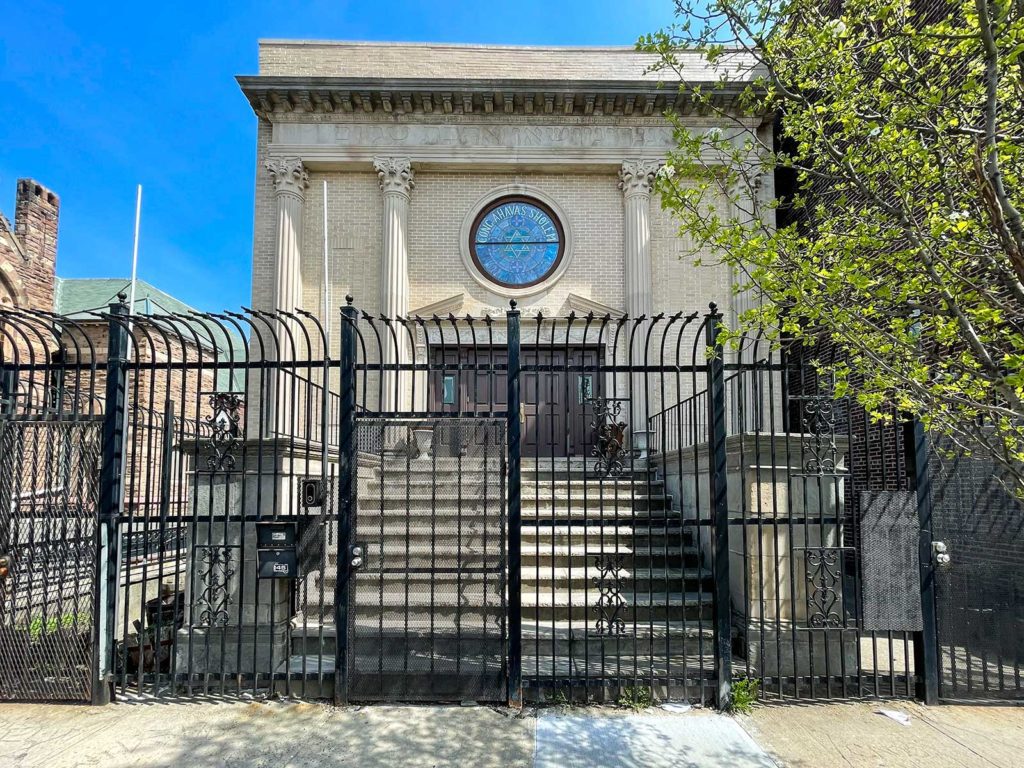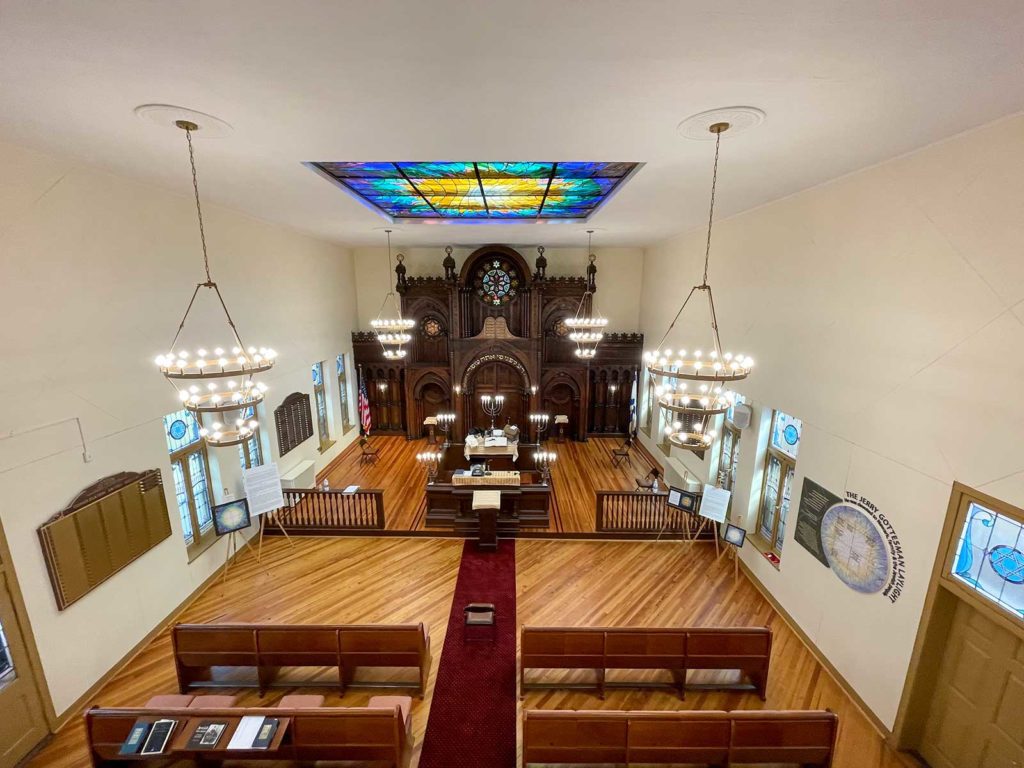
A mass exodus of Jews left Newark around the time of the 1967 riots, leaving behind a number of grand synagogues for other denominations. However, one small synagogue in the North Ward decided to stay. Today, Ahavas Sholom is the city’s longest operating synagogue. But the pandemic nearly robbed them of that honor.
“We have an older congregation— so the risk factors were very high and they weren’t comfortable coming back,” Eric Freedman, president of Ahavas Sholom, said.
After a few false starts, Ahavas Sholom — which means “love of peace” in Hebrew — finally opened in time this year for the high holiday of Passover almost two years to the day of their closure.
“It’s good to take out the Torah scroll again,” Freedman said.

While Newark’s largest Jewish neighborhoods were traditionally found in Weequahic and the Central Ward, Ahavas Sholom was built in 1923 for a small group of Eastern Europeans living in Lower Broadway.
“When I first came to Newark in 1978 to administer the city’s neighborhood improvement programs, every house in Weequahic had a painted-over mezuzah,” said David Abramson, an architect who worked on the restorations of two Newark synagogues — Ahavas Sholom and Oheb Shalom. “Ahavas is the remaining light from that vibrant community.”
The synagogue is more modest in size than the city’s three pre-eminent temples — B’nai Jeshurun on MLK Boulevard, Oheb Shalom on Prince Street (now the home of the Greater Newark Conservancy), and B’nai Abraham on Springfield Avenue. But the site lays claim to an important architectural feature — the state’s oldest Holy Ark.
In 1926, Manhattan-based Congregation Rodeph Sholom moved from Lexington Avenue to 83rd Street. Their Holy Ark, which was hand-carved from mahogany in 1872, was put in storage until the board members decided to donate the ark to Ahavas Sholom in 1929.
“It’s our pride and joy,” Freedman said. “A new synagogue built in the suburbs would never have an ark like this.”
The timing of the synagogue’s reopening is meaningful to Freedman. There is a precept in Judaism called tikkun olam, which means “repair the world,” and it is especially important during Passover, a holiday that commemorates the liberation of enslaved Hebrews. Freedman said that although his congregation is historically conservative, he has been steering it towards being a progressive force during the two decades of his presidency.
Freedman hopes to follow in the footsteps of the Jewish Newarkers before him who were committed to social justice, namely Joachim Prinz, a rabbi at Temple B’nai Abraham. Prinz is remembered for speaking at the March on Washington where his longtime companion, Martin Luther King, Jr., gave the “I have a dream speech.”
Freedman has since won grants to fund three parks in the city — most recently Sussex Avenue Playground — held art contests, and transformed the Hebrew school on the second floor of the temple into a neighborhood art gallery.
“We want people in the neighborhood to know it’s a place of worship, as well as a community resource,” he said. “The Jewish legacy in Newark is quite profound.”